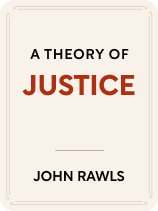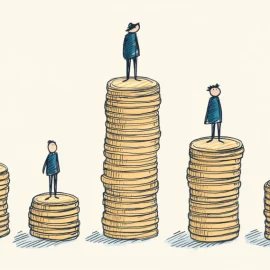

This article is an excerpt from the Shortform book guide to "A Theory of Justice" by John Rawls. Shortform has the world's best summaries and analyses of books you should be reading.
Like this article? Sign up for a free trial here.
What is John Rawls’s critique of utilitarianism? Why does Rawls consider utilitarianism immoral?
Utilitarianism was a dominant theory of justice during Rawls’s time. In A Theory of Justice, Rawls criticizes utilitarianism on the grounds of allowing the majority to oppress a minority.
Here are John Rawls’s utilitarianism views.
Rawls’s Critique of Utilitarianism
A utilitarian theory of justice believes society should aim to provide the most social benefits or “utility” possible to the most people possible. Utilitarians quantify social benefits (rights, wealth, liberties, and so on) in terms of the pain or pleasure they provide. They then argue that society’s rules for distribution should maximize pleasure and minimize pain for the largest number of people possible. For example, a utilitarian argument for speed-limit laws suggests the social benefits they give people (greater safety for all drivers, minimizing the pain of potential car accidents) outweigh the social benefits they take away from people (the pleasure certain individuals gain from being free to drive as fast as they want) and are therefore just.
According to Rawls, utilitarianism is flawed as a theory of justice because it allows for a majority of people to oppress a minority—when social benefits, such as greater wealth or opportunities, provided to the majority outweigh the social benefits that the minority are deprived of, such as liberty, rights, and wealth. For example, if a utilitarian could prove that chattel slavery pleasured the enslavers more than it harmed the enslaved, they would say that institution was just.
Rawls believes this kind of oppression is inherently immoral and that utilitarianism fails to acknowledge this. Even utilitarian theories that allow for equal rights and liberties only do so because they believe that equal rights create the most benefits possible—and not because they believe people have an inherent right to avoid oppression or that oppression is inherently wrong.
(Shortform note: Some utilitarian scholars argue that under utilitarianism, oppression is never just. This argument rests on the idea that some essential pleasures like safety, food, and shelter should be given far more weight than non-essential pleasures. Using this moral calculus, something like slavery is automatically unjust because it deprives slaves of essential pleasures like safety and well-being for the sake of providing non-essential pleasures to slave owners like extra wealth or leisure time.)
| Utilitarianism in Academia Rawls presents utilitarianism as the dominant theory of justice in the 20th century and therefore as the greatest challenger to justice as fairness. However, some scholars argue that when Rawls was writing, many philosophers had already turned away from classic utilitarianism. Instead, these philosophers turned to “consequentialism,” a less radical version of utilitarian thinking that places less emphasis on logically measuring pleasure and pain to determine what is moral and just. While Rawls’s critique of utilitarianism may seem out of place, it serves as a launching pad for his broader project: trying to create a theory of justice that ensures a baseline level of well-being for everyone and rejects oppression as inherently immoral.) |

———End of Preview———
Like what you just read? Read the rest of the world's best book summary and analysis of John Rawls's "A Theory of Justice" at Shortform.
Here's what you'll find in our full A Theory of Justice summary:
- John Rawls's 1971 theory of justice as fairness
- A breakdown of Rawls's Original Position theory and framework
- The three duties every citizen has in a just society






